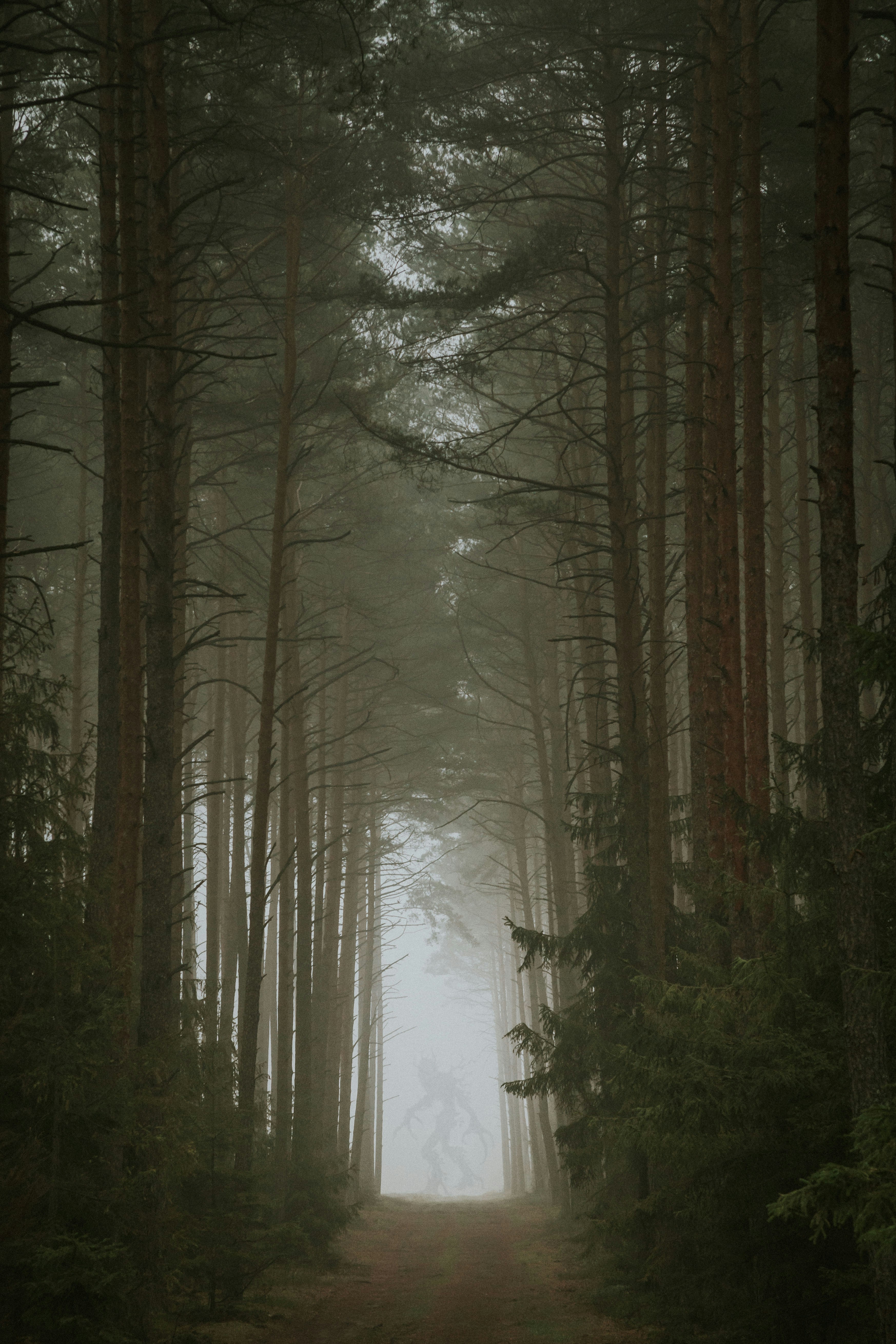
How to beat Goliath
Because size doesn’t matter
I have formulated 6 rules which I call David’s rules. These are for anyone facing the big one ...
I went back to the Anamallais in early December (8-13, 2007), twenty years after I had left the place. We had some friends visiting from South Africa and we decided to take them to see the tea gardens. What better place to visit than to go to where we had lived and worked? So, we landed in Lower Sheikalmudi in our old bungalow which has been converted into a guest house.
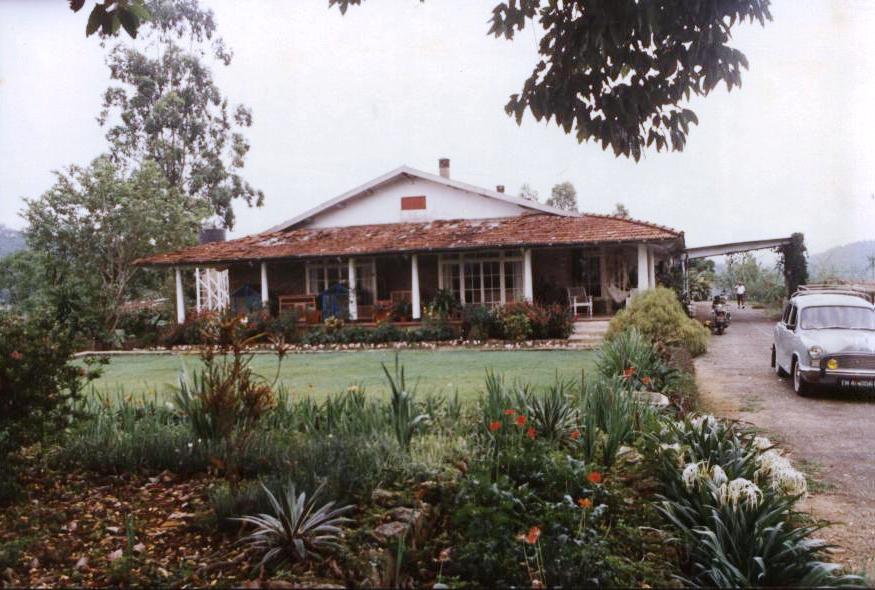
It was a visit that was amazing to say the least. It taught me the meaning of loyalty; of honoring friendship which has no relation to the time that may have passed. The day we reached it was late afternoon and I decided to go for a walk. I walked down from the bungalow and took the footpath going down into the big swamp at the bottom of that hill. A familiar path that I used to walk down almost every day when I was in LSM from 1985-1990 in two separate stints. Having descended into the swamp (lots of trace of wild boar digging) I climbed the other side up to the main road going into what used to be the LSM Coffee Area; one of my favorite haunts to watch wildlife. As I walked up that road, I saw a man come running down the hillside. I waited for him. It turned out to be Shashi the supervisor (the man who built the pipeline to bring water to the hilltop).
He looked totally delighted at seeing me. I extended my hand to shake his hand, but he took it respectfully in both his hands and touched it to his forehead. “We heard you were coming, Dorai. We were waiting for you. Where are you going?”
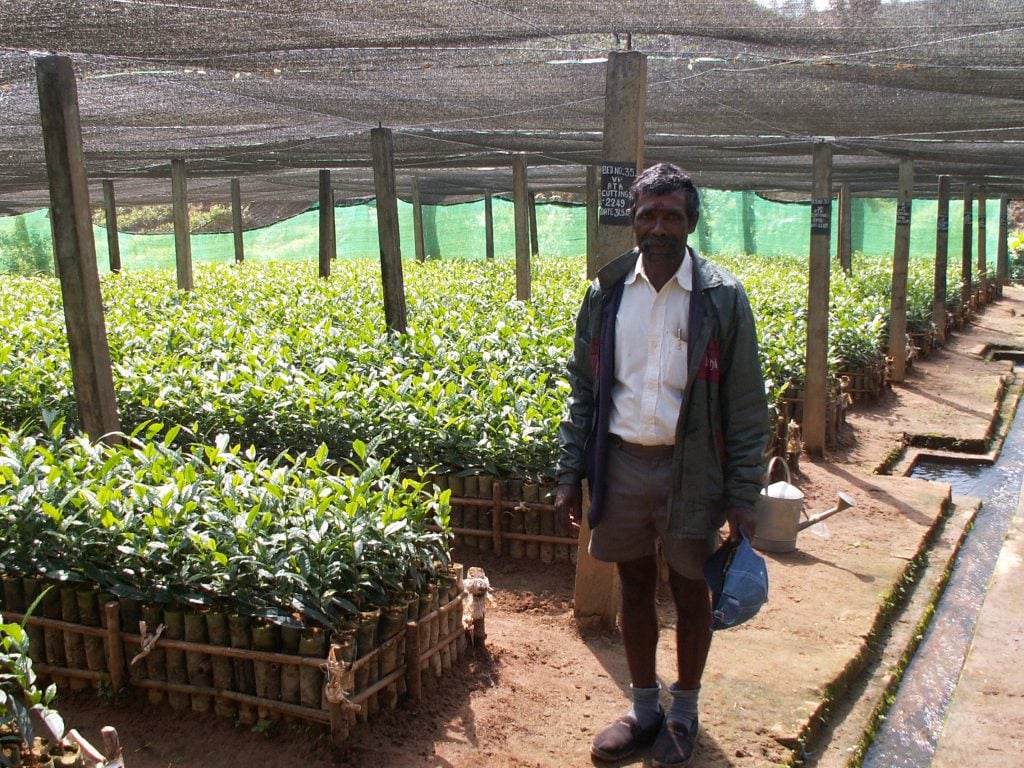
“I thought I would go into the coffee area and sit on the rock that I used to sit on and see if the bison (Gaur) still come down in the evening,” I said.
“Dorai, please don’t go there now,” he said. “I saw you going in that direction and had a suspicion that you were going to the coffee area and came to warn you. There is a lone elephant in musth in that area and it is not safe for you to be walking like this. You have not changed. You are still afraid of nothing,” he said with a big grin on his face. “People are waiting for you in the muster. Why don’t you come there and meet them?”
I agreed and we walked up the road to the muster. Musth is the name for a condition of high sexual passion bordering on insanity that male elephants go into periodically. The sign is a discharge from the temporal glands near the eye which looks like the elephant is weeping.
Wikipedia has this to say: “Musth is a periodic condition in bull (male) elephants, characterized by highly aggressive behavior and accompanied by a large rise in reproductive hormones. Testosterone levels in an elephant in musth can be as much as 60 times greater than in the same elephant at other times. However, whether this hormonal surge is the sole cause of musth, or merely a contributing factor, is unknown; scientific investigation of musth is problematic because even the most placid elephants become highly violent toward humans and other elephants during musth, requiring segregation and isolation until they recover. Female elephants do not undergo musth.”
This muster is where I used to go every single day for more than three years. I noticed that it had been extended with an additional room and was as neat and clean as I remember it. In the muster were some of my other old friends, LSM-UD workers, supervisors, and some old and new staff. The new staff had been told all about me, in good plantation style and I am sure that all my shortcomings must have been conveniently forgotten in the story telling, if the reverence that they showed me was any indicator. My old trekking companions, the Raman brothers came. One (the elder) is a supervisor and the other (the younger) is a worker. Their father was Kullan who was my dear friend and mentor when I first joined planting in 1982.
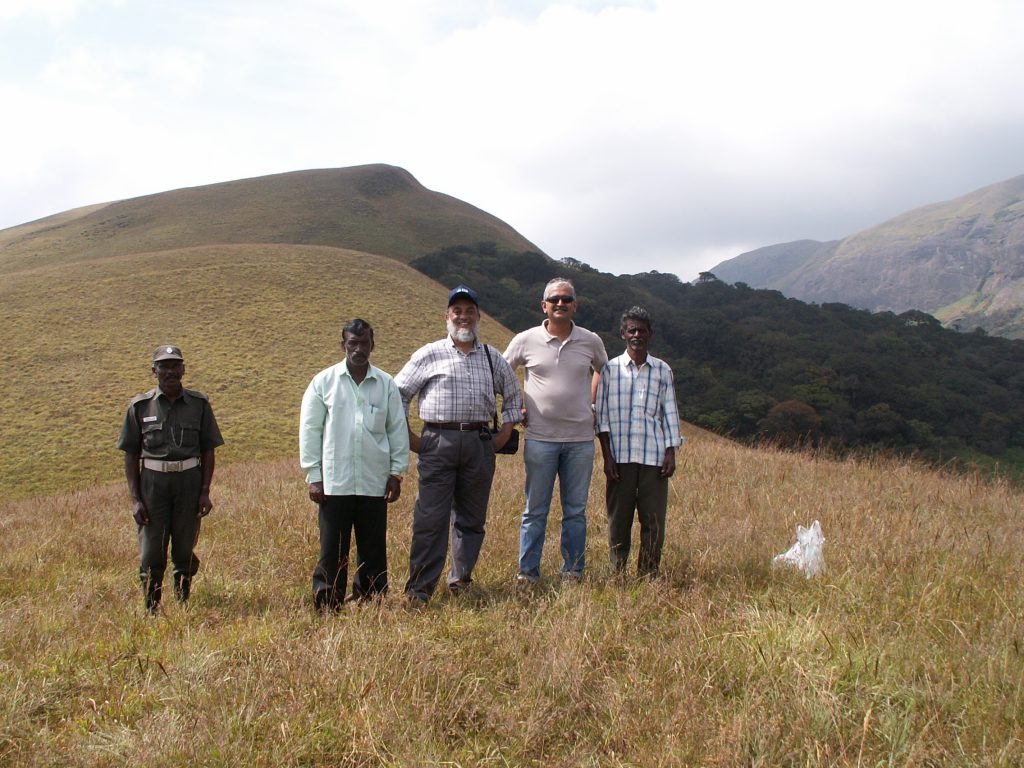
We had some tea, made plans to climb up to Manjapettai the next day, and then Raman (the younger) insisted on accompanying me back to the bungalow. We talked about his family along the way. The children have all grown, married, and have their own children. He is a proud grandfather. Hesitantly, he asked me if I’d had any children. I told him, “Your children are my children, no?”
“Dorai, we are all your children. May God bless you and keep you well, Dorai. Tomorrow I will show you the tea that you planted. Hundreds of people have a livelihood because of that tea. It is the rule in the estate that the pluckers take your name first before they start plucking that tea. It is called Baig Dorai Thotam (garden). Your name will never be forgotten as long as that tea remains, Dorai.”
The next day we took a picnic lunch (flat masala omlettes, rolled in rotis with some pickle on the side) and walked up the hill to Manjapettai. My nephew Aly Basith, and our two friends from South Africa were with us. Once we climbed down the hill from the bungalow, the climb is about four kilometers; never very steep but always rising. As you continue upwards, it can get quite taxing on a body used to sitting in chairs more than walking up and down hills. Add thirty years and you have the picture. Not very flattering, but the truth. As you climb up out of the tea, you enter first the scrub jungle, very thick with all kinds of shrubbery including some very potent stinging nettles called Anai-marti. All my old memories came flooding back. Raman & Raman were thrilled that I could still recognize the plants. Raman the younger cut a stout stick for me which is something that I used to like to keep as a climbing aid. Today I needed it more than simply wanting it. We walked through a path that Raman cut in the undergrowth with his pruning knife. As I walked, I remembered that this was the habitat of the Hamadryad (King Cobra) which is an endangered species. This snake preys on other snakes, is extremely fast and aggressively territorial. I remembered one of the pluckers who was bitten by a Hamadryad when I had been an Assistant Manager on this estate in 1984. She died before she could be taken to the hospital.
It was late in the afternoon when this happened. The girl had been plucking tea and had moved away from the gang towards the jungle border. The snake must have attacked almost in silence. The sight of a King Cobra coming at you with the front of its body raised above the ground (in the case of a big snake this can be as much as four feet high) and hood fully extended is a fearsome sight indeed. She screamed in terror and tried to run. But the snake travels at more than fifty miles per hour and she did not stand a chance of escaping. The other pluckers who heard her ran to her aid. But it was too late. She collapsed as they reached her and died a few minutes later. The venom of the King Cobra is both neurotoxic and hemotoxic in nature and so is lethal. Tragic though this incident was, it was the only one in living memory and has never happened again since then.
We came out of the brush eventually, having been bitten liberally by ticks (the price to pay for climbing through the forest) on to the base of the rock called Manjapettai (rough translation – Yellow Rock) because of the color of a lichen that grows on this rock. There is a small stream that flows through a slight depression in it and at one point forms a shallow pool. This is the drinking pool that Sambar and Gaur come to drink in. When we reached there that afternoon, we also found some old elephant dung strewn around the pool, but no fresh sign of any elephant. Walking up the hill, we surprised a basking cobra (normal variety – Naga Naga) and then startled a Sambar doe that was resting in a thicket. She exploded out of the bush and galloped down a slope that I would have hesitated to walk down too fast. It was in the tree (still there, much bigger now) that grew out of the rock near the pool, on which I’d had a platform constructed and used to sit up on to watch animals. As I have written earlier, nights on this platform were very cold but the sight of the sun rising next morning was worth far more than the discomfort of the cold.
I remembered the sounds of the forest that I would hear as I sat on the platform and watched the sun go down. These sounds are somewhat different from those in the Sahyadri hills in Adilabad district where I spent many happy times in my childhood with Uncle Rama on his farm in Sethpalli. The Western Ghats have evergreen rain-forest and not the semi deciduous forests of the Sahyadris. I would get up into the tree early so as not to disturb any game. One of the Ramans would sit up with me. The other one would see us to the place and leave and return early the following morning to collect us. It was not safe to stay on the ground during the night unless you had a fire. But the fire would drive all the game away and so we had this arrangement. The first calls as the sun went down was always the jungle fowl going up to roost. First the cocks would crow – kak kaak, kaa kak?? – with a question mark at the end. Then the hens would sometimes cackle as they flew up to their roosts. Once they settled in, the Nightjars would start flitting on silent wings, catching the night insects in flight as they came out of their hiding places. It is a fascinating sight to watch the Nightjars as they took their interceptor flights. The Nightjars sit in an open place (on a small rock or in the middle of the path) and make their characteristic call chut-chut-chut-churrrrrrrrrrrr. They repeat this call endlessly, sitting absolutely still but watching the world very closely. As soon as it sees a poor unsuspecting insect going about its business, the Nightjar simply erupts into the air and the world insect population is reduced by one. 100% kill rate. Amazing birds.
Then there would be silence for a while as the jungle settled for the night. As the first light of the moon started to strengthen, the owls would come out of their roosting places, where they had been hiding both from the sun as well as from the crows who harass them mercilessly if they see them in the open. They hunt in pairs. They fly out onto the flat branch, one followed by the other, that was their take off perch. They would sit there for a while and talk to each other, perhaps discussing strategy. Then he would glide away in one direction and she in another. You must see an owl in flight to understand the meaning of grace. Suddenly you hear the dhank-dhank of the Sambar. This is the alarm call telling the other tenants of the jungle that one of the two big cats that live in this forest, the tiger, and the leopard, is around. The Sambar is the most reliable of the sentinels which call out when they see these predators. During the day it is the Nilgiri Langur with the black faces, beautiful shiny grey fur and impossibly long tails who have one of their number as a permanent lookout.
But at night, the Langur are among the first to go to the treetops where they spend the night, safely out of harm’s way. Langurs are at the top of the leopard’s dietary preference and so no wonder they prefer to be where the leopard is not subjected to any temptation. The Sambar has fallen silent. This means that he can no longer see the tiger or leopard. As long as he can see them, he calls continuously. Then as you look at the deep shadows, one of them moves and comes out into the open which is illuminated by the moon, now strongly present. You can see the shine of the black coat and the white socks. You hear the snort as the bull clears his nose. The Gaur are here. As he gives the all-clear the cows and calves come out and all of them move to the shallow pool to drink. There is not enough water for all of them to drink together so they will remain there for as long as it takes for the pool to keep filling as they keep emptying it.
The presence of one herbivore is a sign to the others that the situation is safe. It is essential of course for us to keep our silence, breathing softly and staying completely still. It is amazing how highly developed are the senses of animals whose life depends on this. Even the slightest movement or sound and they vanish as if they had never been there. Raman seems carved in stone. I recall all my early childhood training in jungle craft and thank Uncle Rama silently for teaching me to take care of myself and to reconstruct the story of the forest from the signs. We both sit in complete silence and watch the animals which are less than twenty meters from us.
I had put out blocks of rock salt (salt licks) and so some of the animals move away towards the salt lick and eventually even sit down to chew the cud around the salt lick. I have seen Sambar pick their way between resting gaur to get to the salt, all in perfect harmony with each other. As the night passes, we can hear elephants feeding in the forest bordering Manjapettai but that night they decide not to come out into the open. The night is now almost completely silent. All the grazing and hunting has been done. Now the whole world is resting. The time is 3 a.m. according to the glow of my watch dial. The night is very, very cold. A breeze has started which blows unhindered up the slope of Manjapettai. The bison (Gaur) herd has moved off back into the forest. There is nothing in sight. Raman and I are both feeling very cold. We silently decide to descend onto the rock and light a fire. The firewood has already been collected the previous evening and is at the foot of the tree. We get down to the rock and Raman sets about creating a nice and bright bonfire. To enjoy a fire truly one must first be at freezing point. Then you light the fire and sit in front of it and toast yourself. That is bliss. Of course it destroys your night vision and if you have to suddenly turn and look into the darkness you are completely blind, but then in our case there is nothing to see in the darkness and so we both sit before the fire, wrapped in our blankets and talk of various matters grave enough to be spoken of at 3 a.m. It is amazing how people who we may dismiss as illiterate and uneducated (not that I ever did that), make observations, reflect upon them, and form educated opinions. A favorite topic with most Indians is politics and the antics of politicians. We are a very politically savvy people. We understand our politicians like nobody else. But what beats me is how we always manage to elect such puerile ones.
We would discuss the reasons for corruption in our system. What always strikes me is the good, simple, and sincere hearts of our poor. And at the same time their learned helplessness. Every conversation would end with the same refrain, ‘Ah! But what can we do?’ The reality is that if anything can be done, it is only we who can do it. This remains an elusive concept. Having put that to rest, we would watch the fire and wait for dawn. Raman proves that he is made of gold by pulling out a flask with piping hot tea and he and I share the tea and wait for the night to pass. He offers me a bidi (dry tobacco leaf rolled into a cigarette) and I accept. This is something he would not have dreamt of doing while I was the Manager. But now we were simply old friends, meeting after a long time. The beedi makes me feel warmer, which I know is totally psychological. But we both feel closer for it. I am not a smoker and never was, except on occasions like this where I would still not suck the smoke into my lungs. Just into my mouth and blow it out. Waste of a beedi but I am sure my lungs are thankful.
Gradually our talk runs out and we doze in spells. The fire starts to go down and occasionally, either Raman or I put another log into it. Time passes. We see the owls that had left the previous evening, return to their perch and they have a long conversation recounting tales of the hunt. I have no idea whose story was more impressive, but both seem to have a lot to talk about. The sky is now starting to lighten. There is a strange blue light and I feel as if I am looking at the world from the bottom of the ocean. Then an orange tinge starts at the very bottom of the horizon and gradually grows upwards as if a fire has been started and is strengthening. And indeed, it has.
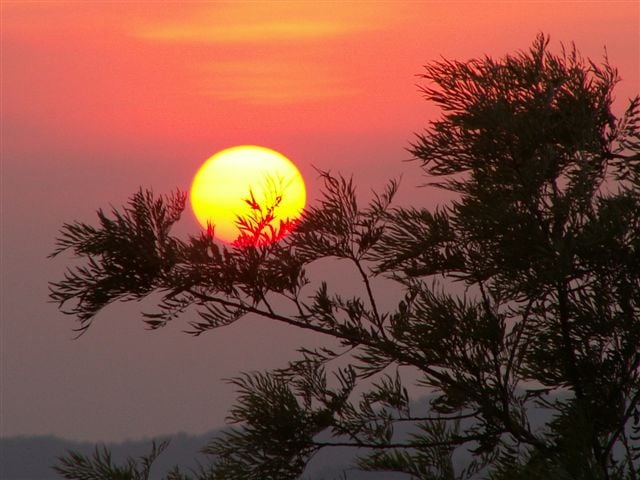
The final payoff of our trip is at hand. The sun is starting to rise. The sky catches fire. The flames rise higher. And then the top curve of the ball of fire appears on the horizon and rises rapidly upwards. The light is now strong. A new day has been born and I am fortunate enough to witness it. What price can I place on this privilege? All it took is a little discomfort, sitting half the night on the top of a tree. I thank Allahﷻ for showing me His creation.
That afternoon it was as if I was watching a flashback movie. As I sat on the rock, eating my egg roll I remembered all these things as vividly as if I were watching it happen all over again. Twenty years had passed. The Gaur I saw are all gone. So also the Langur. Their offspring have taken their place. Raman is there with me, but his hair is now jet black with hair dye. My beard is a salt-pepper shade with more salt. There is change, but the rock is timeless. So is the forest. Ever changing of course, but strangely, still the same. Not often is one privileged to go back in time. I finished my meal and lay down on the rock close to the stream to sleep for a while. Raman & Raman moved away to either ends of the open space to take up watch positions. We are old friends and companions. Nothing needs to be said. Each knows what he should do. I can hear the small stream gurgling as I drift off into the best sleep that I have had in a very long time.
I woke up as the sun started its final journey to America. Only if it set here could the Americans have another day. So, we can’t delay it, can we? We gathered our things and started off back home, this time on a new track past the tea that I had planted 20 years ago. I have told the story of this tea, the taking over of the illegal vegetable gardens and then planting them with tea, when I was the manager of this estate. Today I was very eager to see what had become of it. Once again, we descended into the dark thickness of the undergrowth at the bottom of Manjapettai, now a little apprehensive as we can see fresh sign of elephant. We walk in single file with Raman in the lead and me at the rear with our friends who are new to this environment in the middle. We walk silently. Everyone has been given instructions about what to do if we come across elephants. But nothing as exciting as that happens and we emerge into what has become known as Baig Dorai Thotam (Baig Dorai’s Garden – the name that the pluckers gave it). I looked at it with tears in my eyes. It was the most beautiful sight that I had seen in a long time.
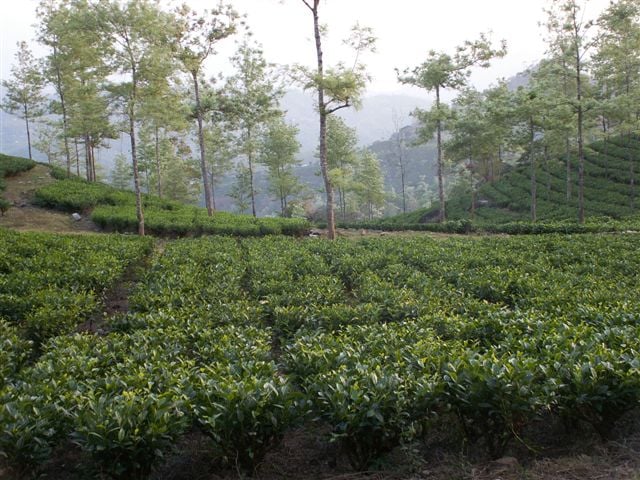
The tea has been extremely well looked after. They had done a height reduction prune to it and it is now back in plucking. Flat as a table, deep green maintenance foliage with light green plucking shoots standing proud and tall. The pluckers had done an extremely fine job. I was delighted that I had decided to come here and visit after so long.
We climbed up on another rock on the border of the tea overlooking the thick evergreen rain forest that the Anamallais are famous for. There is a single Spathodia in full bloom in the middle of the sea of green, the flame red color of the flowers standing out like a bonfire. I can see why it is called the Flame of the Forest. We sit in silence and watch the sun rise somewhere else. As the night descends, I thank Allah once again for giving me this opportunity to come back and see the result of my work and meet my old friends. I feel privileged and honored.
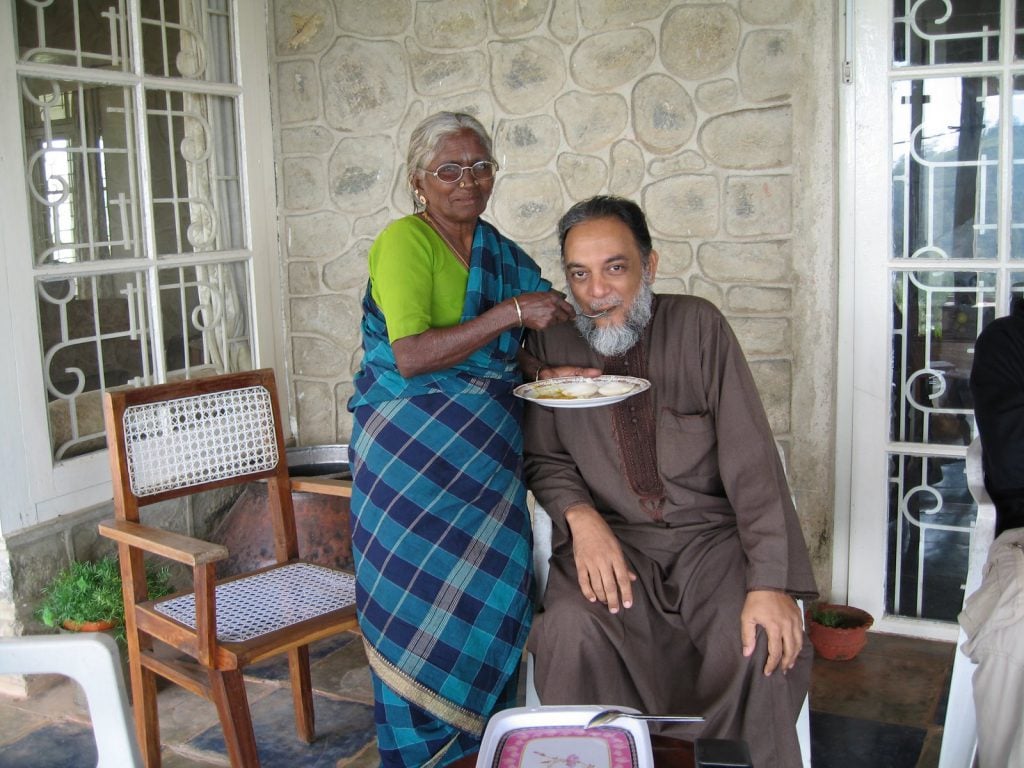
The next day was simply a day of reunions. Selvaraj and Karpusamy Supervisor from Candura. This Karpusamy is the guy in my close encounter with the elephant story that I narrated earlier. Now they have one more year to retirement. Raman Supervisor (there is certainly no shortage of Ramans in this place) of Murugalli called his mother, the famous union leader Aghilandum and told her that I was visiting. So, the next day she came up from Trichy where she is now retired and living with her brother. That is more than five-hundred kilometers and she is eighty-four years old. What could I say? She hugged and kissed me and insisted on feeding me with her own hand. She also died last year. Thangavelu came to visit, cleaned up for the occasion and not looking as if he had just climbed out of an oil barrel, which was otherwise his usual appearance. Since he is an automobile mechanic (without a day’s education to boot) of legendary fame, it is only appropriate that he looks freshly dipped in lube oil. He is also an old friend with whom I share many memories.
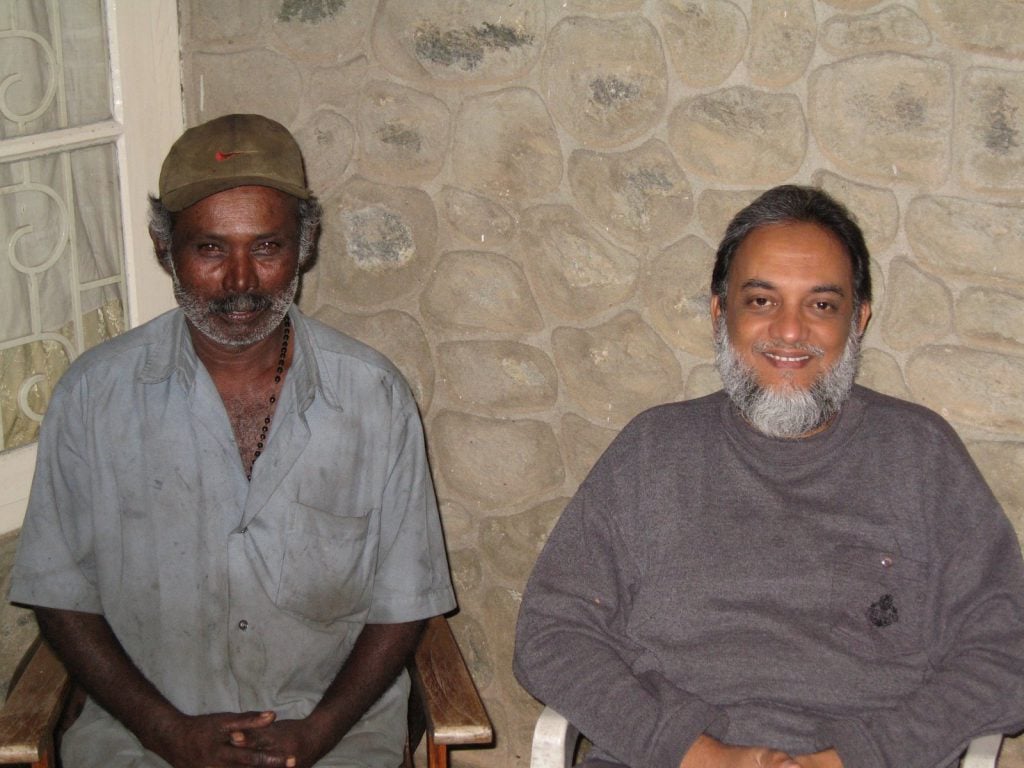
Truly it is said that tea planting is not a job. It is a lifestyle and a way of life with its own norms, culture, taboos, ways, and manners. We in the hills, were a community, comprised of people from a huge diversity of backgrounds, who in the normal scheme of things would never have even known one another, let alone be friends. But in the plantations, we were not only friends but in the case of some of us, closer than family. I can say with total certainty about not one but many of my friends from tea – ranging from workers, to supervisors, staff and fellow managers – that we would have gladly given our lives for each other and feel privileged for the opportunity. We didn’t need to, but on a couple of occasions, it came close to that.
But then that is another story.
Please log in to leave a comment
Loading comments...

I have formulated 6 rules which I call David’s rules. These are for anyone facing the big one ...
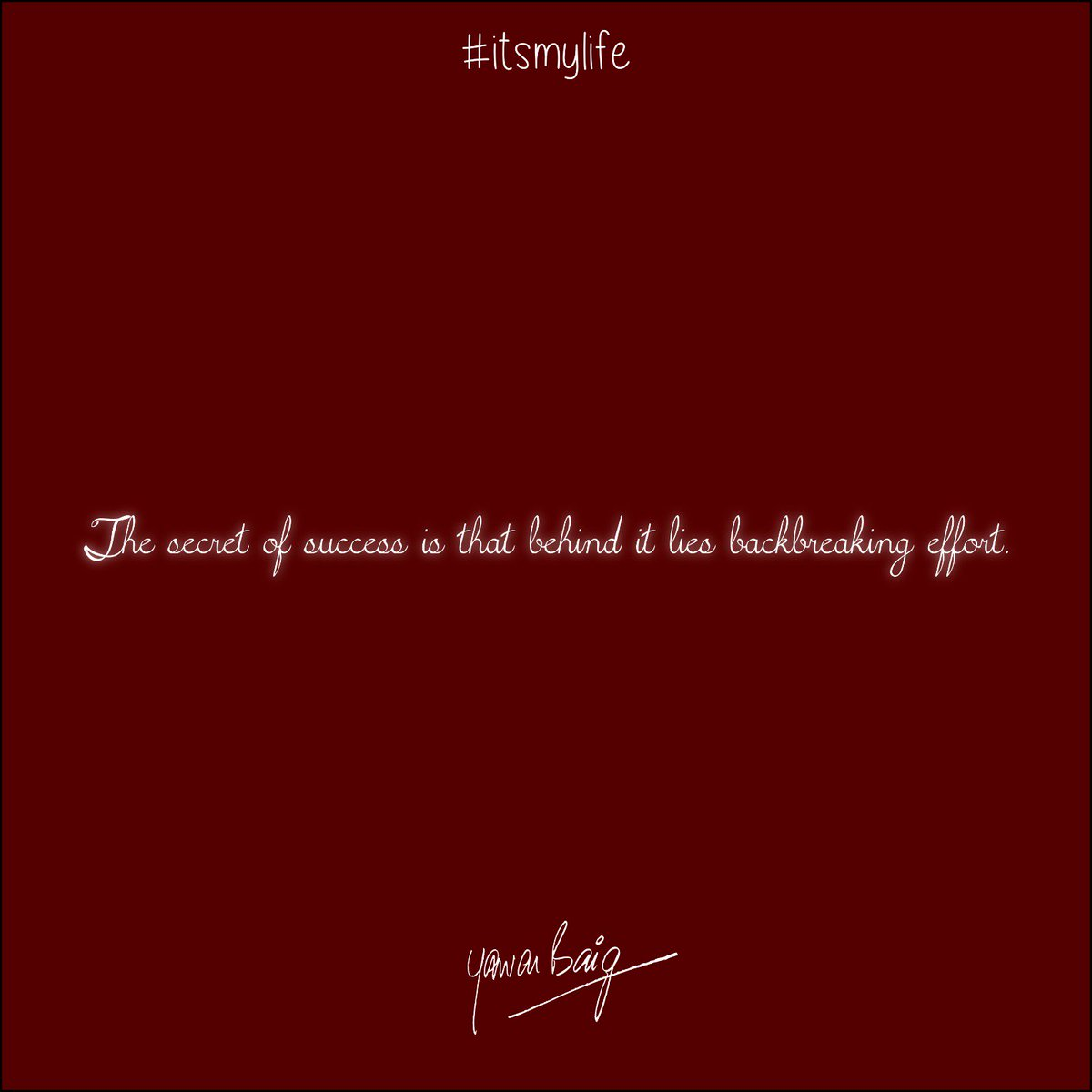
One of my friends who comes from ...
I have said this a million times, if I have said it once – the three crimes committed on society with society’s blessing are: Commerci...